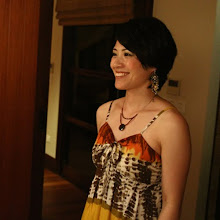April 3, 2011
Only the darkroom of Sasaki Portrait Studio remained miraculously. Perhaps the tile-like material is strong enough to withstand the pressure of the tsunami. A half of the tiled walls of the bathroom remained as well. The steel structure was securely standing.
My parent house with the portrait studio attached was built in 1972 when my sister was one year old. At that time, the building materials were scarce because of oil shock. My father was proud that the house with the studio was built with the ceramic-based material that was particularly purchased fromHokkaido
My parent house with the portrait studio attached was built in 1972 when my sister was one year old. At that time, the building materials were scarce because of oil shock. My father was proud that the house with the studio was built with the ceramic-based material that was particularly purchased from
Large glass doors were situated in the west side of the studio entrance and the studio was located in the mezzanine. The floor space for living covered the north side to the east side of the first floor of the building. When this was built, a red roof and pure white walls were striking. A song by Masatoshi Nakamura (who is a famous Japanese male actor & singer from Onagawa) entitled “White Photo Studio” was modeled after my father’s portrait studio, I heard.
About 13 years ago when I was in college, the exterior walls were painted in ocher. The reason was simple and it was a part of upkeep of the building. I vaguely remember what my father said at that time. He said that the white walls had become old and dirty, so they were pained in the color that would not show much dirt.
This is inside the darkroom. It was saved as it was faced with ceramic walls Saved were three enlargers. A right light bulb is not broken. Was the tsunami movement not so intensified inside the darkroom even though the waves were rolling up and down alternately?
A camera that we found at the very first. This is the one my father was using during the Showa Era. It appears to be Nikon FM2, but it could be a model before that.
Then we found Mamiya 67. My father favored this one for about 5 years. He used to photograph his classmates for portraits with a roll of monochrome film. The magazine is bent and could not be straightened. If I wash off mud from the magazine, I can perhaps straighten it. But how can I wash it? Also, the mud from the tsunami is mixed with salt and heavy oil, so the wiping is just not going to take off the smell. Well, the camera will not be usable anyway, so I wonder if I should wash it off with water. I brought back this camera with me as a memento.
We displayed the camera that we picked up, by the window of the wrecked studio. Originally this camera was displayed on the empty space of the first floor in the studio along with others in a manner that antiques were displayed. I wanted to leave some sort of sign so that people who pass by will know that someone from the studio was here. I was being mischievous. (smile) My father was not actually using these cameras; we have decided to leave these at the original place as decorations.
All these treasures were found on the site where Yakiniku Korai (Korean BBQ Restaurant) across the street was situated. It is not even 10 meters away from the studio. I was surprised to find out that we found these so close to the studio.
This is a bronze statue that my father cherished and was given to him by his master, Mr. Fujiwara of Fujiwara Photo Studio in Jiyugaoka. Since its face and sturdy body resembled my mother, he seemed to like this bronze statue.
This white dish was my mother’s treasure. Bon-odori (dance) of her home town, Nishimonai, Ugomachi of Akita prefecture, was depicted on this dish. It is a wonder that this dish remained with no chipped rim.
Among these, Horseman foldable 4x5 camera was found. This was stored in a duralumin case, but it was bare and had fallen from the case.
The blue sky was refreshing on March 28, unlike March 16, the day when my sister visited here. This is also due to the cleared road. My sister said that she had a totally different impression of Onagawa.
Since we had been resolved to accept our parents’ death, we enjoyed each other with ‘treasure hunting” on this day.
Found a bar of chocolate!
An aluminum wrap was not broken at all. I peeled off the wrapping paper and found out that the chocolate was intact. However, I could not eat it, thinking about the mud like sludge. She closed her eyes; this was my mistake (in taking the picture this way), but her face looks more lightened than before.


0 件のコメント:
コメントを投稿